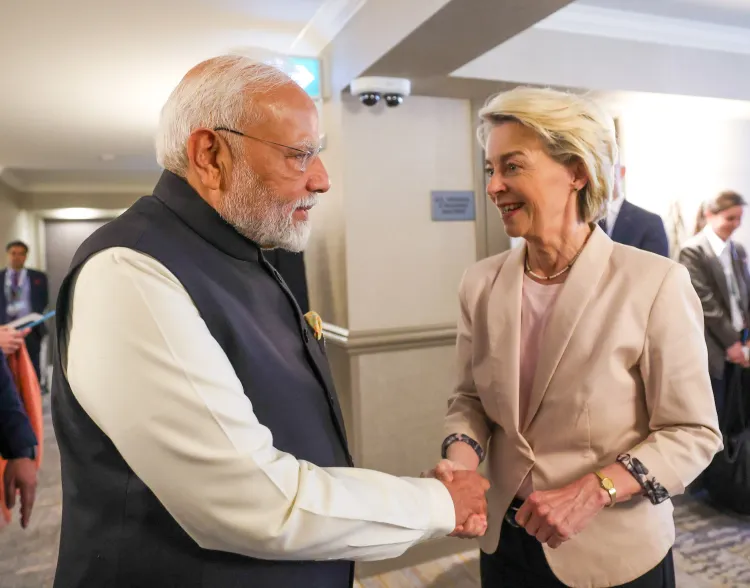Should India and the EU Finalize an FTA to Enhance Trade and Investment Relations?

Synopsis
Key Takeaways
- India and the EU are negotiating a free trade agreement (FTA) to boost bilateral trade.
- Rising tariffs from other nations highlight the urgency of finalizing the FTA.
- Investment Protection Agreement aims to secure a favorable environment for investors.
- Bilateral trade reached 180 billion euros, showcasing significant economic ties.
- Joint initiatives are expected to drive innovation and business growth.
New Delhi, Oct 4 (NationPress) The European Union's Ambassador to India, Herve Delphin, emphasized on Saturday that both India and the EU must leverage the free trade agreement (FTA) to boost bilateral trade and investment, especially in light of recent tariff increases from certain nations, implicitly referring to the US.
During his address at the second annual general meeting of the Federation of European Business in India (FEBI) in New Delhi, the Ambassador remarked, “The FTA has the potential to unlock new opportunities for businesses in both the EU and India, paving the way for a significant rise in our bilateral trade and investment. Given that some nations are imposing tariffs or restricting their markets, we should seize the FTA to diversify trade, mitigate uncertainties, and enhance our supply chains.”
Delphin noted that EU President Ursula von der Leyen and PM Modi have set a target to finalize the FTA by the end of this year. While the negotiating teams are diligently working towards this goal, he acknowledged that the discussions are complex and that several critical issues remain unresolved.
“The EU has always been prepared to finalize a meaningful agreement. We eagerly anticipate the next round of negotiations towards a deal that benefits both parties,” Delphin stated.
Additionally, he mentioned that, in conjunction with the FTA, the EU and India are also working on an Investment Protection Agreement. This agreement aims to establish a predictable, secure, and transparent environment for investors from both the EU and India, which is essential for attracting the higher levels of foreign direct investment (FDI) needed for India's economic growth.
“The cases for both the FTA and the Investment Protection Agreement have never been stronger. Our economies complement each other and offer significant opportunities for scale,” he noted.
The ambassador emphasized that while the FTA and Investment Agreements could be transformative, the EU-India economic relationship encompasses more than just these agreements. The recent Joint Communication released by the European Commission and High Representative Kaja Kallas outlines a policy vision for EU-India relations, introducing a new EU-India Strategic Agenda.
He highlighted that the five main pillars of this agenda predominantly focus on the economy and business.
Each of these pillars includes numerous proposals and initiatives aimed at joint action that could yield concrete results. These proposals include creating innovation hubs to support start-ups, developing Blue Valleys as dedicated platforms for private sector engagement in select value chains, and focusing on critical supply chains such as semiconductors, active pharmaceutical ingredients, clean tech, and biotech. There are also plans for a gateway office to assist the mobility of skilled workers in the ICT sector.
Delphin further pointed out that the EU stands as India's top trading partner, with bilateral trade in goods reaching 120 billion euros, surpassing both the US and China. When services are included, the bilateral trade total climbs to 180 billion euros.
“This figure is impressive, yet there is immense potential for growth, especially considering that the EU and India rank as the 2nd and 4th largest economies globally. To tap into this potential, the EU and India are negotiating the FTA,” he concluded.









